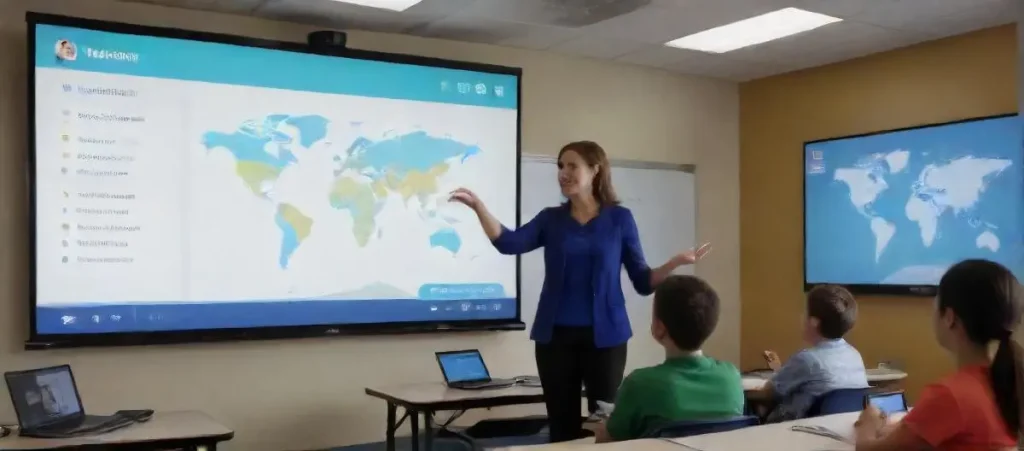IPTV (Internet Protocol Television) is a system that delivers television services using the Internet Protocol (IP) suite over a packet-switched network such as the Internet, instead of being delivered through traditional terrestrial, satellite signal, and cable television formats.
IPTV is a digital television service that is delivered to subscribers through Internet Protocol (IP) networks. It is a more efficient and cost-effective way of delivering television content as it uses internet technology, rather than traditional cable or satellite methods. IPTV allows users to access a wide variety of content, including live TV, on-demand movies and TV shows, and interactive features such as video on demand, pause, rewind and fast-forward TV programs.
IPTV is already being used in education to enhance the learning experience. Many schools and universities have implemented IPTV systems to deliver educational content, such as lectures, seminars, and training videos, to students. IPTV is also being used to provide interactive learning experiences, such as virtual field trips and simulations.
IPTV is a cost-effective way of delivering television content as it uses internet technology, rather than traditional cable or satellite methods. This means that schools and universities can save money on expensive cable or satellite subscriptions.
IPTV is accessible from anywhere with an internet connection. This means that students can access educational content from home, school, or on the go.
IPTV allows for interactive learning experiences, such as virtual field trips and simulations. This helps to engage students and make learning more fun and interactive.
IPTV provides a wide variety of content, including live TV, on-demand movies and TV shows, and interactive features such as video on demand, pause, rewind and fast-forward TV programs. This means that students have access to a wealth of educational content, all in one place.
IPTV requires a high-speed internet connection to deliver high-quality video content. This means that schools and universities may need to invest in upgrading their internet infrastructure to support IPTV.
IPTV requires some technical expertise to set up and maintain. This means that schools and universities may need to hire additional staff or contractors to manage their IPTV system.

IPTV allows for personalized learning experiences, where students can choose the content they want to watch and learn at their own pace.
IPTV can be used to gamify the learning experience, making it more engaging and fun for students.
IPTV can be used to deliver virtual and augmented reality experiences, providing students with immersive learning experiences.
While IPTV has many advantages, there are also some challenges to consider, including cost, technical expertise, and security.
To implement IPTV in education, schools and universities can follow these steps: conduct a needs assessment, determine the budget, identify a vendor or service provider, ensure that the IPTV system is secure, and train staff and students on how to use the system.
IPTV has the potential to transform the way we learn, providing students with a more engaging and interactive learning experience. By following the steps outlined in this article, schools and universities can successfully implement IPTV and provide their students with a modern and innovative learning experience.
What is IPTV?
IPTV is a digital television service that is delivered to subscribers through Internet Protocol (IP) networks.
How does IPTV work in education?
IPTV allows schools and universities to deliver educational content, such as lectures, seminars, and training videos, to students. It also allows for interactive learning experiences, such as virtual field trips and simulations.
What are the advantages of IPTV in education?
IPTV is cost-effective, accessible, interactive, and provides a wide variety of content.
What are the disadvantages of IPTV in education?
IPTV requires a high-speed internet connection and some technical expertise to set up and maintain.
How can I implement IPTV in my school or university?
To implement IPTV in your school or university, conduct a needs assessment, determine the budget, identify a vendor or service provider, ensure that the IPTV system is secure, and train staff and students on how to use the system.

Copyright © 2026 "NetTV" - All Right Reserved

